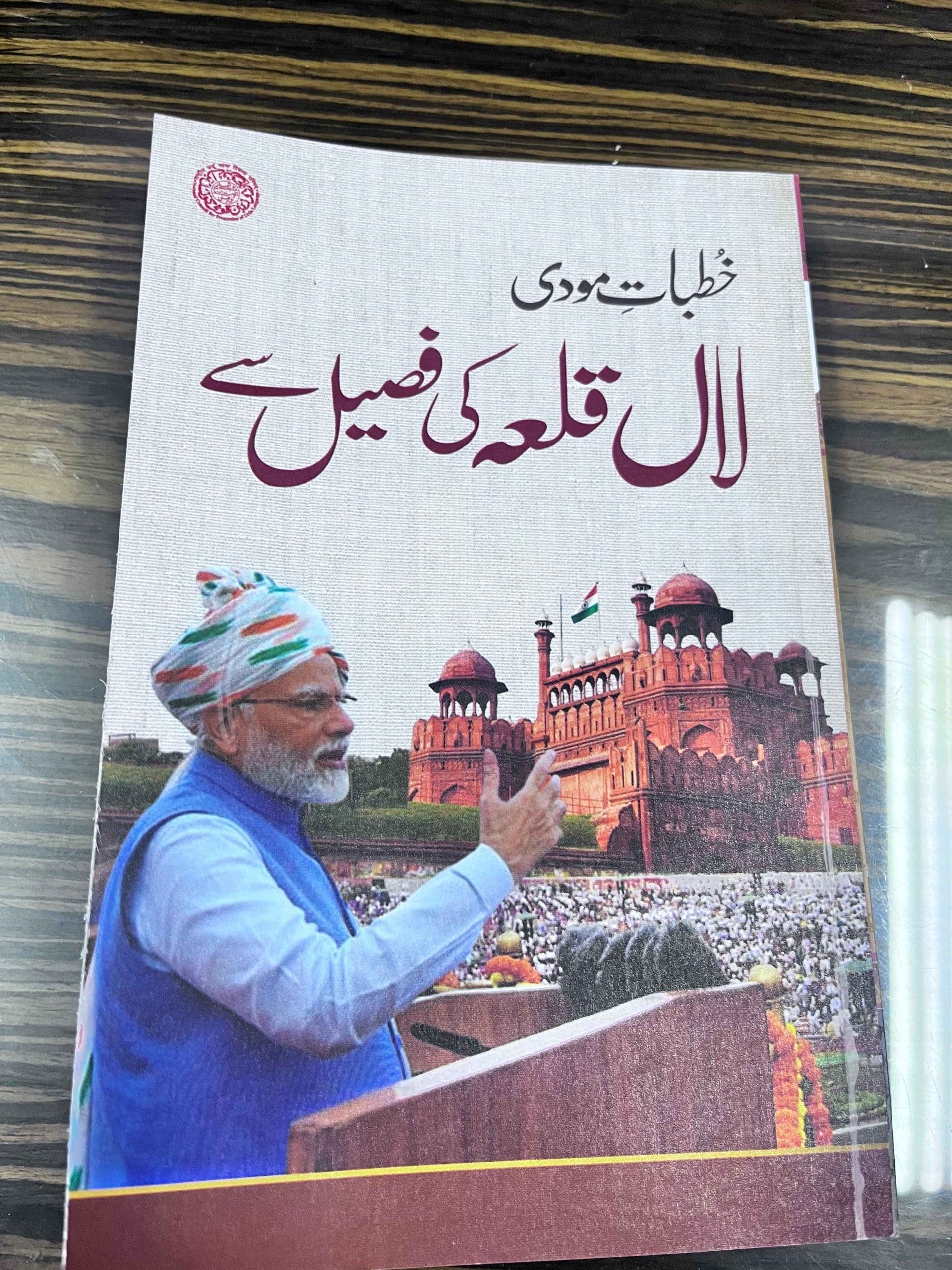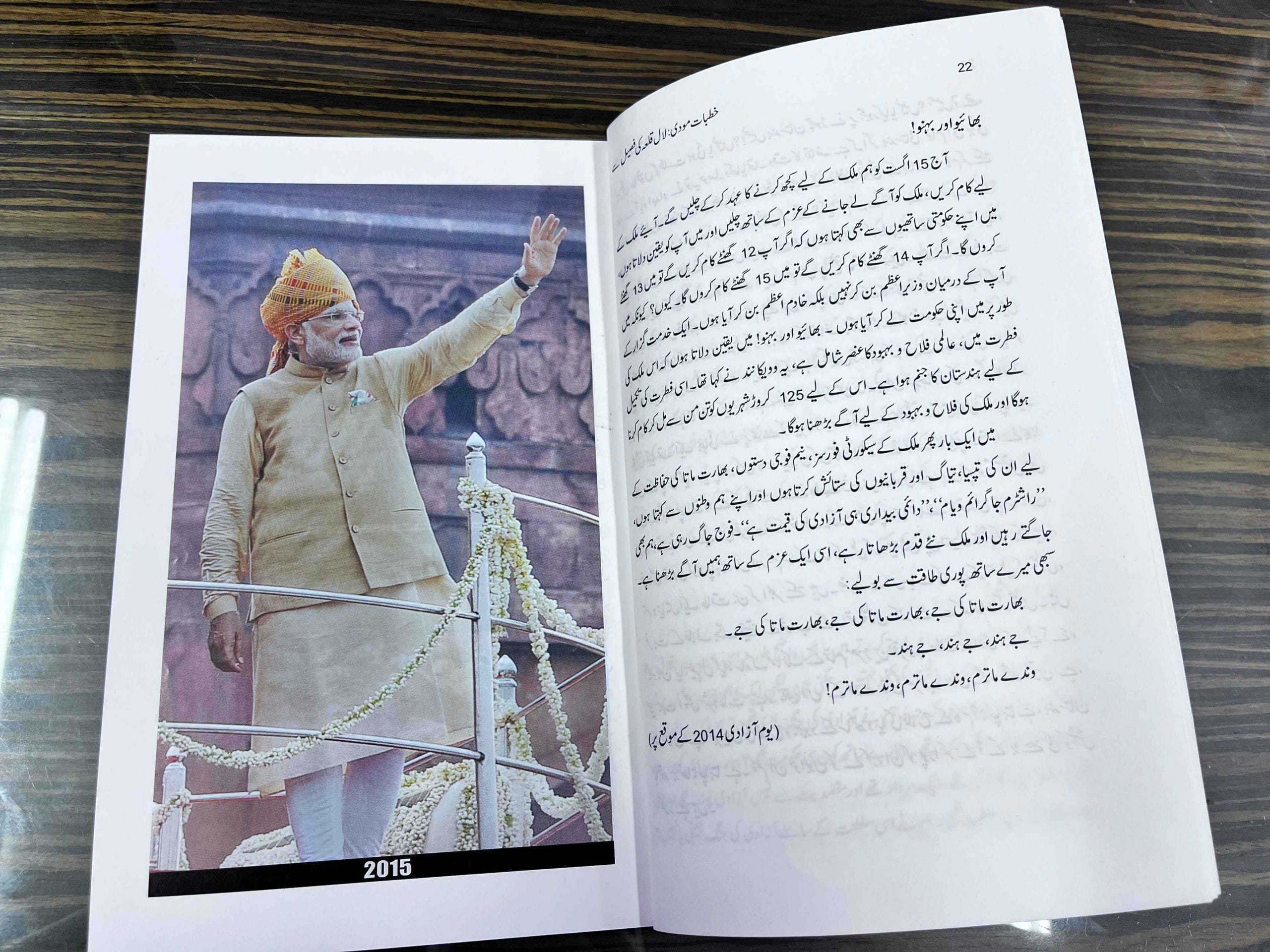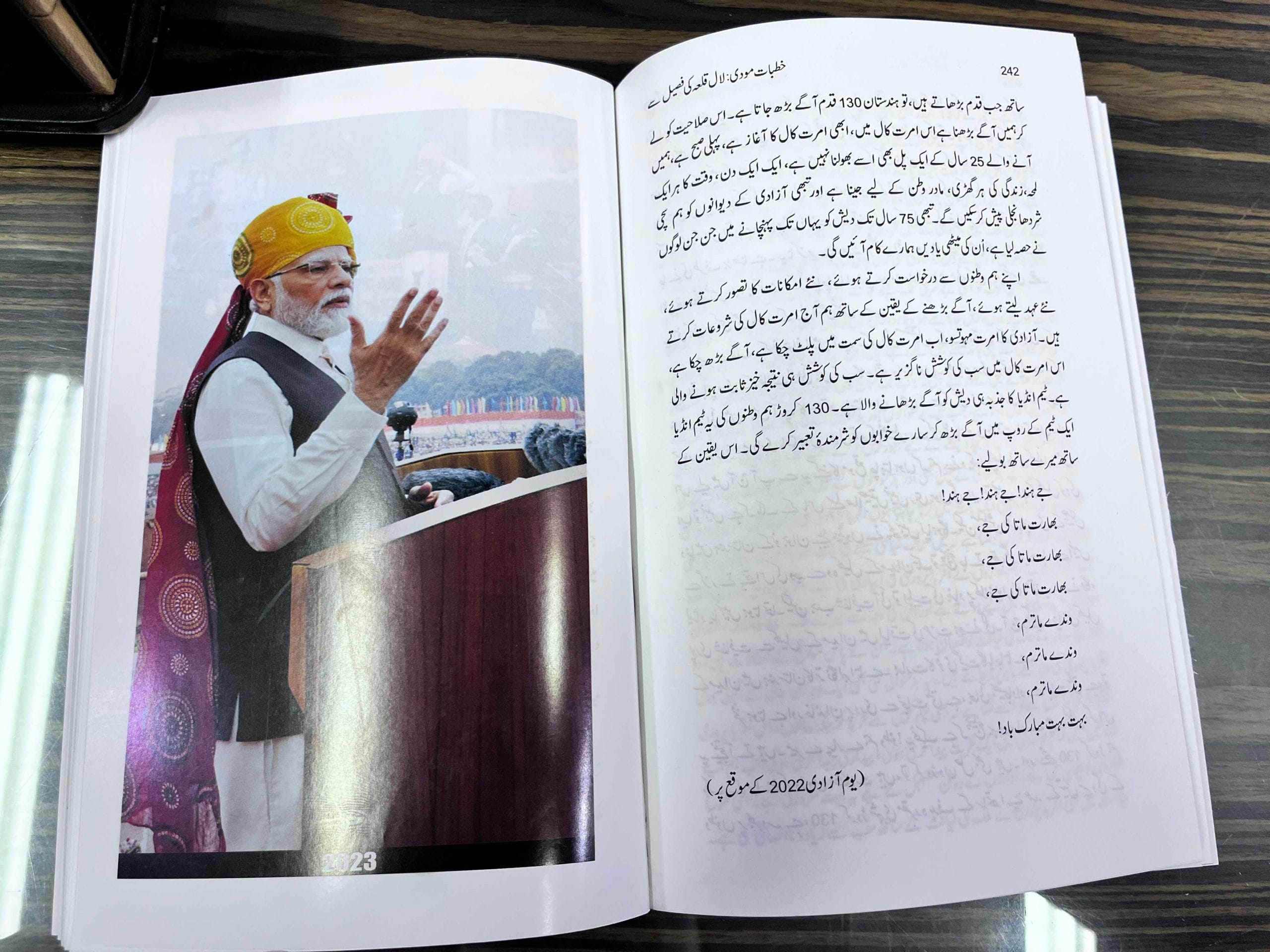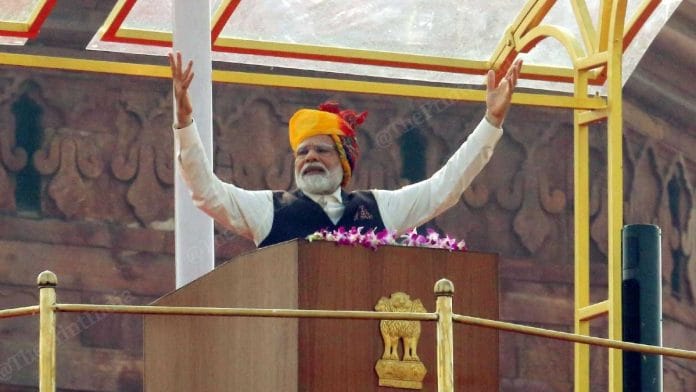New Delhi: Urdu-speaking readers can now access with ease Urdu translations of “Wazir-e-Azam” Narendra Modi’s Independence Day speeches, courtesy of a new book published by the National Council for Promotion of Urdu Language (NCPUL). The idea behind the book is to acquaint Urdu readers with Modi’s “vision” and “farsightedness”.
This is the first time the council, an autonomous body under the Ministry of Education, has published such a book on any Prime Minister.
The book, titled Kutbaat-e-Modi: Lal Qile ke Faseel se (Modi’s speeches from the ramparts of the Red Fort), is a 300-page volume featuring more than 30 images capturing Prime Minister Modi in his Independence Day addresses, from 2014 to 2025.
NCPUL director Dr Shams Equbal told ThePrint that the book aims to give Urdu-speaking readers, who often lack access to English, an opportunity to explore Modi’s speeches, through which they can find examples and guidance for the development of the country.

“All important policy decisions for the country’s development—whether economic policies, social initiatives like Swachh Bharat, or the vision to achieve Viksit Bharat (developed India) by 2047—were first announced during these speeches by our visionary leader. That is why we decided to publish this book,” said Equbal.
“In my knowledge, there is no such book available in any of the other 22 scheduled languages. Of course, the speeches are available in Hindi and English on government websites, but not as a collective work like this,” he added.

The book will be featured in upcoming exhibitions organised by the NCPUL and will also be made available online for purchase.
The foreword, written by Equbal, states: “Under Prime Minister Narendra Modi’s leadership, the country’s journey of development has advanced significantly. His example demonstrates vision, commitment, and the ability to overcome challenges. As a result of the people’s hard work and persistent effort, India today is progressing as a strong nation, earning recognition, respect, and acceptance worldwide.”
In the book, several of Modi’s iconic phrases have been adapted to Urdu to make them more relatable to Urdu-speaking readers.
For example, his familiar greeting “mere pyare deshwasiyon” has been translated as “mere pyare hum-watanon”, and “desh” has been referred to as “mulk”. Similarly, “Prime Minister” is presented as “Wazir-e-Azam”, and Modi’s signature self-reference as “Pradhan Sewak” has been adapted to “Khadeem-e-Azam”.
“The idea was to make the speeches accessible and relatable for Urdu readers, which is why certain words and phrases in each speech have been carefully translated into Urdu. This approach ensures that the essence, tone, and nuances of Modi’s addresses are retained while connecting effectively with the Urdu-speaking community,” explained Equbal.
The book highlights how Modi has worked tirelessly for the welfare and progress of India, bringing significant changes across sectors such as industry, trade, education, health, and technology.

It further emphasises that during times of crisis, Modi has successfully guided the nation with careful planning, personal effort, and visionary leadership. “He has ensured economic reforms, administrative improvements, and governance systems that aim for long-term benefits for the country,” reads the back cover of the book.
It also notes that Modi has not only dedicated himself to serving the nation but has inspired citizens through his thought and example. “Modi’s leadership is described as rare and extraordinary, demonstrating vision, dedication, and a commitment to transformative development,” it states.
(Edited by Amrtansh Arora)
Also Read: Born in a curfew, Old Delhi’s Urdu library runs out of space, funds. 30,000 books & counting







No thanks we need no NCPUL (or more aptly ANCPUL) to communicate a message to those who won’t listen in another language. Why dilute the semantics for deaf ears?